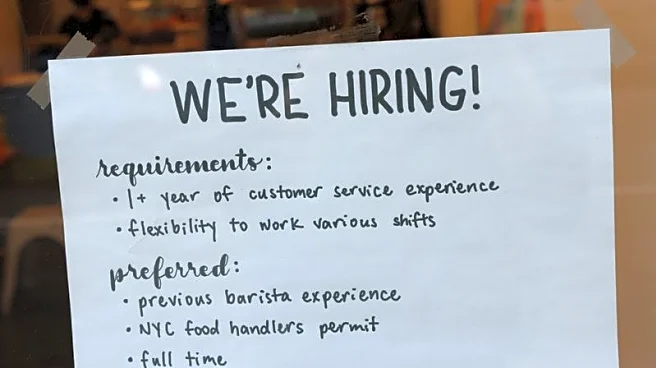What's Happening?
On October 2, 2025, railway workers' unions in France organized a strike, which is expected to cause minimal disruptions to train services. This strike follows previous disruptions on September 10 and 18. While some disruptions are anticipated on TER
regional trains and intercity services, TGV high-speed trains are expected to operate normally. The strike is part of ongoing protests against government reforms and changes in working conditions. Historically, train strikes in France have been a tool for railway workers to protest against government reforms, pension changes, and working conditions, often occurring during holidays or busy travel seasons to maximize impact.
Why It's Important?
The strike highlights the ongoing tension between railway workers and the French government over reforms and working conditions. Such strikes can affect travelers and the tourism industry, especially during peak travel seasons. While TGV services remain largely unaffected, regional and intercity disruptions can lead to delays and cancellations, impacting commuters and tourists alike. The ability of unions to organize strikes during critical travel periods underscores their influence in negotiating changes, which can have broader implications for labor relations and public policy in France.
What's Next?
Future strikes may continue as unions persist in their demands for better working conditions and opposition to government reforms. Travelers in France should remain vigilant and plan for potential disruptions, especially during holiday seasons. The government may need to engage in further negotiations with unions to address their concerns and prevent future strikes. Monitoring strike calendars and using real-time travel apps can help travelers navigate potential disruptions.
Beyond the Headlines
The cultural significance of strikes in France reflects a long-standing tradition of labor activism dating back to the Industrial Revolution. Strikes are seen as a legitimate means for workers to voice their demands and influence policy changes. This cultural aspect may continue to shape labor relations and public policy in France, influencing how other sectors approach negotiations and reforms.

















